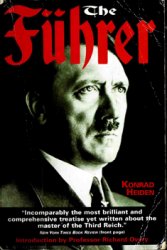Judaism is one of the most ancient religions still practiced in the world today. It has survived despite centuries of persecution that has lasted into the 20th century. Modern
Judaism has evolved from trends of earlier centuries and the subsequent Diaspora, the displacement of Jews from ancient Israel. After the Holocaust, perpetrated under the Nazi regime during World War II, Jews located in three major geographic locations, which together include more than three-fourths of the Jewish population: Israel, the Slavic region of the former Soviet Union, and the United States.
Twentieth-century Judaism consists of Orthodox, Reform, and Conservative branches. In the 19th century Judaism separated into Orthodox and Reform bodies. For Orthodox Jews, both the written law (Scriptures) and the oral laws (commentaries on the legal portions of the Scriptures) are authoritative and derived from God. For Reform Jews, the Scriptures are not authoritative in any absolute sense, but binding only in their ethical content. While Orthodox Jews maintain the traditional practices, Reform Jews perform only those rituals that they believe can promote and enhance a Jewish, God-oriented life. In 1999 leaders of American Reform Judaism reversed century-old teachings by encouraging, but not enforcing, the observance of many traditional rituals. The Conservative moment, or “historical school,” which emerged in the 20th century, seeks to formulate a middle position between Orthodox and Reform Judaism, which maintains most of the traditional rituals, while recognizing the need to make changes in accordance with contemporary deliberation. Conservative Jews believe that the history of Judaism proves that tradition and change occur together, and that what is central to Judaism and has remained constant throughout the centuries is the people of Israel, not the fundamentalism of Orthodoxy. Related to the Conservative movement is the Reconstructionism of Mordechai M. Kaplan, who maintains that Judaism is a human-centered rather than a God-centered religion.
Their differences are in ritual practices, which shade from one group into the other. Common to all is the role of the rabbi, no longer solely a Talmudic scholar but an administrator, spiritual leader, pastor, and preacher. Although there was some cooperation among the three major Jewish denominations—Orthodox, Reform, and Conservative— the real effort of organized Judaism in America in the late 20th century revolved around the individual synagogue and the branch to which it belonged.
Just as the Civil Rights movement led by Martin Luther King, Jr., marked a turning point in the civil rights history of Aerican Americans and contributed to a sense of national pride, the Six-Day and Yom Kippur Wars, in which Israel defeated combined Arab armies, marked a turning point in the Jewish sense of self. There was a sharp rise in interest and pride in the embattled Jewish state of Israel that carried over to American Jewish culture generally. Of additionally political historical significance is the
Democratic nomination of Senator Joseph Lieberman of Connecticut as vice presidential candidate in the 2000 election, the first Jew to be so nominated.
Jews followed the American norm, affiliating in greater numbers with synagogues, though often for ethnic or social, rather than religious, reasons. Although Jews constitute only a small fraction of the population of the United States (2 percent of the overall 1993 U. S. population), Judaism occupies a role far surpassing its numerical importance and is regarded, with Protestantism and Roman Catholicism, as one of the major American faiths.
See also religion.
Further reading: J. L. Blau, Modern Varieties of Judaism (New York: Columbia University Press, 1966); A. Eisen, The Chosen People in America (New York: Dimensions, 1983); R. Seltzer, Jewish People, Jewish Thought (New York: Dimensions, 1980); Jack Wertheimer, A People Divided: Judaism in Contemporary America (New York: Basic Books, 1993).
—Michele Rutledge




 World History
World History









